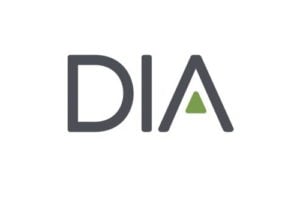Real-world data (RWD) offers the possibility of providing important information to help inform regulatory decision-making. But turning this possibility into reality still depends on the quality and reliability of the data, say J&J’s Yumi Wakabayashi and Vicky Han in October 2023’s DIA Global Forum magazine. With appropriate efforts to ensure data quality, RWD can support regulatory decisions in Japan (and other countries/regions as well), note Wakabayashi and Han, adding that close collaboration between health authorities, study sponsors, and data owners is critical in better understanding and overcoming issues in making this possible.
Japan’s Ministry of Health, Labour and Welfare (MHLW) has provided two notifications to help sponsors ensure the reliability of RWD used in regulatory applications: Points to Consider for Ensuring the Reliability in Utilization of Registry Data for Applications (2021) and Points to Consider for Ensuring the Reliability of Post-marketing Database Study for Drugs (2018).
In September 2022, MHLW also released the administrative notice Questions and Answers (Q&A) on Points to Consider for Ensuring the Reliability in Utilization of Data from Registry or Medical Information Database in Applications for Marketing Approval and Re-examination for Drugs. It stated that if data quality management was not performed sufficiently by the registry/database provider for the data items that the applicant intended to use for a regulatory application, then these data can only be used for regulatory applications if the registry/database provider took additional actions to ensure that quality management of these data items was sufficient.
One example of using RWD in a study is to design a prospective trial for one group receiving treatment with the investigational drug and deriving the data for the treatment-naïve group or a group treated with an existing comparator from their historical (RWD) data.
In Japan, RWD means accumulated medical information obtained from routine medical practice. Medical information including patient records, laboratory test values, image data, prescription information, etc., are collected and stored either electronically or on paper at medical institutions. Since universal health insurance is established as a social insurance system, medical expenses are almost always covered by the government and the social insurance medical fee payment fund in Japan. For the government’s payment, the National Health Insurance Medical Fee Review Committee commissioned in each prefecture confirms the medical treatment and/or medications to determine appropriate reimbursement for them. This Review Committee only determines the appropriateness of the insurance coverage in question. Unless the Review Committee has specific questions about it, they do not ask medical practitioners to verify the data. Therefore, medical information is unlikely to be corrected even if it has obvious inconsistencies. Database providers often prepare their databases by pooling medical information and health insurance claims data from medical institutions that include these inconsistencies. This is a primary reason why the need to ensure data quality and reliability of RWD is so urgent in Japan.
From a different perspective, the US does not have a universal health insurance system. Except for the elderly and low-income patients who are insured by the government (Medicare and Medicaid programs, respectively), individuals receive insurance coverage through their employers or by purchasing insurance plans from private health insurance companies. These insurers require specific medical practice and treatment information when managing, reimbursing, and providing their coverage. Thus, as a result, in the US, RWD collected by private health insurance companies are likely to be more standardized and feature fewer inconsistencies.



